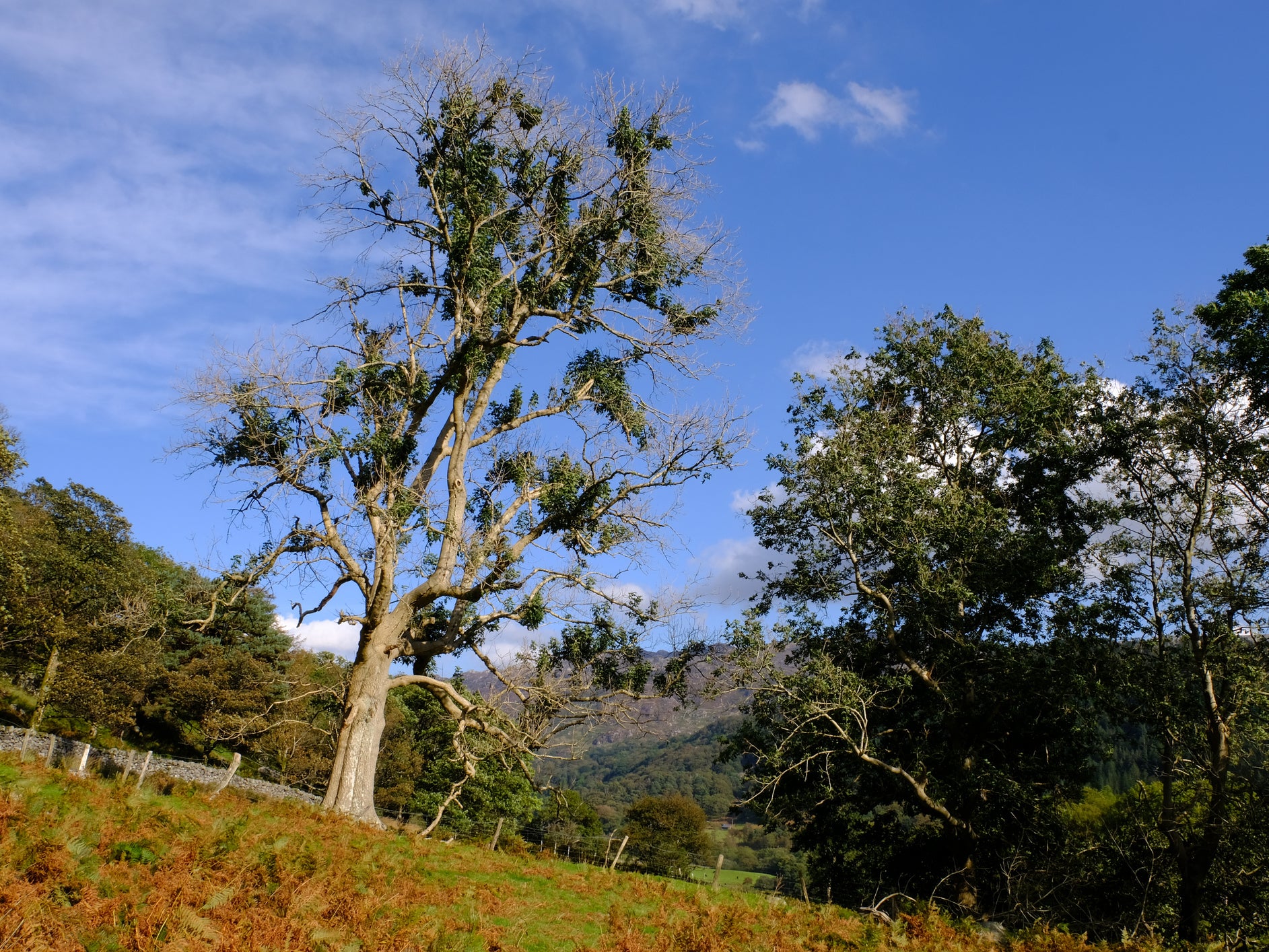Ash dieback: Genetic resistance offers new hope over ‘unstoppable’ disease expected to kill 70 per cent of species
Loss of millions of mature trees in Britain forecast to have bigger economic impact that 2001 foot-and-mouth disease outbreak

A devastating fungal disease, the cause of ash dieback, is on course to decimate Europe’s ash trees, with 70 million in the UK currently expected to perish over the coming years, costing the economy an estimated £15bn.
But in some pockets of woodland, resistance to the sickness has been detected, offering a glimmer of hope that ash trees will not be permanently erased from the landscape.
Scientists sequenced whole genomic DNA from 1,250 ash trees in 31 different areas in order to identify the inherited genes associated with ash dieback resistance.
The study, published in the journal Nature Ecology & Evolution, shows resistance is controlled by several genes, offering hope survivors could be used to restore diseased woodlands, either by natural regeneration or selective breeding.
Professor Richard Nichols, author of the study from Queen Mary University of London, said: “We found that the genetics behind ash dieback resistance resembled other characteristics like human height, where the trait is controlled by many different genes working together, rather than one specific gene.
Nature Photographer of the Year
Show all 10“Now we have established which genes are important for resistance we can predict which trees will survive ash dieback. This will help identify susceptible trees that need to be removed from woodlands, and provide the foundations for breeding more resistant trees in future.”
Samples were collected from ash trees in a Forest Research mass screening trial, which comprises 150,000 trees across 14 sites in southeast England.
The researchers screened for resistance genes using a rapid approach where the DNA of diseased and unaffected trees was separated.
Many of the genes found to be associated with ash dieback resistance were similar to those previously shown to be involved in disease or pathogen responses in other species.
Ash dieback is a major threat to the UK landscape. According to the Woodland Trust, the effects “will be staggering”.
“It will change the landscape forever and threaten many species which rely on ash”, the trust has warned.
The fungus Hymenoscyphus fraxineus affects ash trees of any age and in the UK between 70 and 95 per cent of ash trees are expected to succumb.
The £15bn economic impact is expected to be greater than that of the 2001 foot-and-mouth disease outbreak which led to more than 6 million cattle and sheep being exterminated, according to an assessment this year by a team from Oxford University.
The predicted costs include clearing up dead and dying trees, but also lost benefits provided by the trees, including water and air purification and carbon sequestration.
The loss of these services is expected to be the biggest cost to society, while millions of ash trees also line Britain’s roads and urban areas, and clearing up dangerous trees will cost billions of pounds.
The disease has spread throughout Europe’s ash populations, and was first recorded in the UK in 2012.
Professor Richard Buggs, senior research leader in plant health at the Royal Botanic Gardens, Kew and lead author of the paper, said: “There is no cure for ash dieback and it threatens to kill over half of the 90 million ash trees in the UK. This will have huge impacts on the British landscape.
“Our new findings of the genetic basis of natural resistance found in a small minority of British ash trees help us to predict how ash populations will evolve under ash dieback. While many ash trees will die, our findings are encouraging from a long-term perspective and reassure us that ash woodlands will one day flourish again.”
Subscribe to Independent Premium to bookmark this article
Want to bookmark your favourite articles and stories to read or reference later? Start your Independent Premium subscription today.

Join our commenting forum
Join thought-provoking conversations, follow other Independent readers and see their replies